Lofgeornost
Feeling Martian!
- Joined
- Jul 8, 2020
- Messages
- 3,459
- Reaction score
- 10,440
I haven't posted much since early September, since I've been too busy and off the board. So I have a backlog of pleasure reading to record. I'll start with a couple of novels by John Buchan that I read in the last month or so. He's more famous as a spy/thriller writer, for things like The 39 Steps (which I have to admit I've never read), but he also wrote historical novels. Thanks to the Hoopla app of my local public library, I read his Witch Wood and liked it enough that I sprang for a Kindle version of The Blanket of the Dark--which was cheap, anyway ($2.99, IIRC).
The first of these was Buchan's own favorite among his many novels and, I gather, got a fairly good critical reaction at the time. It's the story of a young Presbyterian minister, David Sempill, newly appointed to small village in the Borders region in the 1640s. He finds by accident that some of his parishioners are practicing witchcraft, which the novel interprets in a Margaret Murray 'ancient fertility cult' way (reasonable enough, given that it was written in 1927). His struggles to suppress this are made more difficult by the fact that leading members of his congregation are involved, and the whole situation complicated when he becomes embroiled (distantly) in the military campaigns of the Earl of Montrose. There is also a romance, of course, although the love interest is the most two-dimensional character in the book. The book assumes you know something about Scottish history in this era and the nature of Scots Calvinism. In part it's a story of the nature of religious faith and the threats of hypocrisy and dogmatism. All that may make it sound impenetrable, but it's actually brisk reading. One barrier is that, though Sempill himself and a few other aristocratic characters speak standard English, many of those in the book use a lot of Scots dialect. The book has a glossary of several pages in the back, but it's useful to read it with access to tools like DSL: Dictionaries of the Scots Language.
The second book, Blanket of the Dark, is almost alt-history--it is the tale of a nonexistent rebellion hatched c. 1536 against Henry VIII. The figurehead of the rising is the (imaginary) son and heir of Edward Stafford, duke of Buckingham, whom Henry had executed in 1521. Our protagonist, named 'Peter Pentecost' is thus a descendant of Edward III and has a claim to the English throne. He has been raised in ignorance of this, as an orphan and later poor scholar at Oxford, until the plotters decide it is time to bring him out to lead the revolt. Like Witch Wood, the book is concerned with religion; in this case, the decay of English monasticism, Henry's 'Catholicism without the Pope,' and the arrival of Protestantism from the continent. An interesting element of the story is Peter's connection to an early Tudor underworld of professional beggars, thieves, and mountebanks. There are also some good scenes in which Peter encounters the king himself, although he is somehow able to perceive Henry's place in history in a way that no-one at the time could have done.
I enjoyed both novels. One characteristic of Buchan's writing has special relevance to RPGs, so I'll mention it. He is very interested in depicting geography and physical setting. This is not just a question of describing or evoking a landscape, but of following the precise routes of individuals through it. In The Blanket of the Dark these are all real places, and it's worthwhile to pull out a map and trace the character's movements, especially since at the novel's crisis this is very important. In Witch Wood, however, all the places are imaginary, though I guess inspired by the Borders villages that Buchan knew from holidays as a boy. From what I can gather, Buchan thought such precise geographical detail very significant in fiction and actually wrote an essay about this. Obviously, this is an issue a GM has to wrestle with with an RPG as well; how much such information is helpful in creating an illusion of reality and how much is too much?
The first of these was Buchan's own favorite among his many novels and, I gather, got a fairly good critical reaction at the time. It's the story of a young Presbyterian minister, David Sempill, newly appointed to small village in the Borders region in the 1640s. He finds by accident that some of his parishioners are practicing witchcraft, which the novel interprets in a Margaret Murray 'ancient fertility cult' way (reasonable enough, given that it was written in 1927). His struggles to suppress this are made more difficult by the fact that leading members of his congregation are involved, and the whole situation complicated when he becomes embroiled (distantly) in the military campaigns of the Earl of Montrose. There is also a romance, of course, although the love interest is the most two-dimensional character in the book. The book assumes you know something about Scottish history in this era and the nature of Scots Calvinism. In part it's a story of the nature of religious faith and the threats of hypocrisy and dogmatism. All that may make it sound impenetrable, but it's actually brisk reading. One barrier is that, though Sempill himself and a few other aristocratic characters speak standard English, many of those in the book use a lot of Scots dialect. The book has a glossary of several pages in the back, but it's useful to read it with access to tools like DSL: Dictionaries of the Scots Language.
The second book, Blanket of the Dark, is almost alt-history--it is the tale of a nonexistent rebellion hatched c. 1536 against Henry VIII. The figurehead of the rising is the (imaginary) son and heir of Edward Stafford, duke of Buckingham, whom Henry had executed in 1521. Our protagonist, named 'Peter Pentecost' is thus a descendant of Edward III and has a claim to the English throne. He has been raised in ignorance of this, as an orphan and later poor scholar at Oxford, until the plotters decide it is time to bring him out to lead the revolt. Like Witch Wood, the book is concerned with religion; in this case, the decay of English monasticism, Henry's 'Catholicism without the Pope,' and the arrival of Protestantism from the continent. An interesting element of the story is Peter's connection to an early Tudor underworld of professional beggars, thieves, and mountebanks. There are also some good scenes in which Peter encounters the king himself, although he is somehow able to perceive Henry's place in history in a way that no-one at the time could have done.
I enjoyed both novels. One characteristic of Buchan's writing has special relevance to RPGs, so I'll mention it. He is very interested in depicting geography and physical setting. This is not just a question of describing or evoking a landscape, but of following the precise routes of individuals through it. In The Blanket of the Dark these are all real places, and it's worthwhile to pull out a map and trace the character's movements, especially since at the novel's crisis this is very important. In Witch Wood, however, all the places are imaginary, though I guess inspired by the Borders villages that Buchan knew from holidays as a boy. From what I can gather, Buchan thought such precise geographical detail very significant in fiction and actually wrote an essay about this. Obviously, this is an issue a GM has to wrestle with with an RPG as well; how much such information is helpful in creating an illusion of reality and how much is too much?



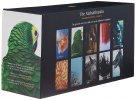
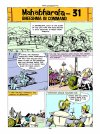
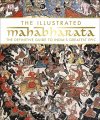
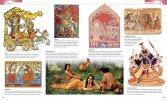
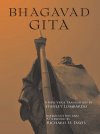

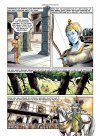
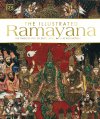
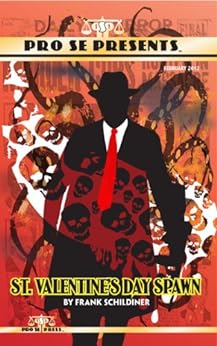
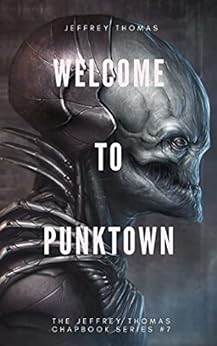

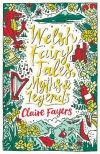
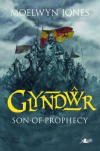

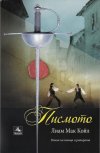
 !
!
 !
!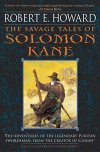
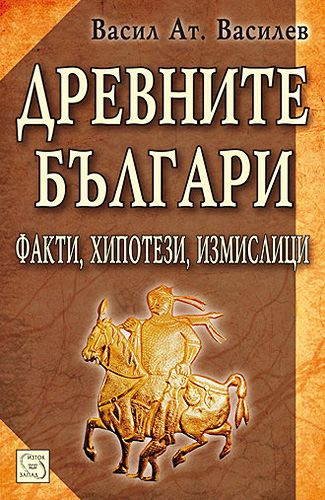
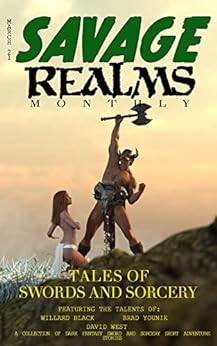
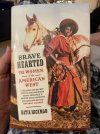

 Life's fun that way. ::stares off::
Life's fun that way. ::stares off:: ) I have started to read Kamala Luonto (Bad Nature, there's
) I have started to read Kamala Luonto (Bad Nature, there's 